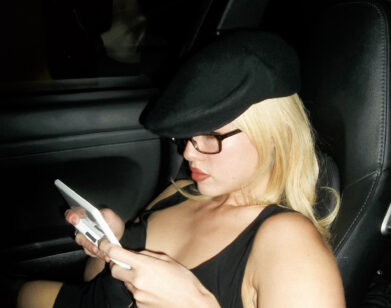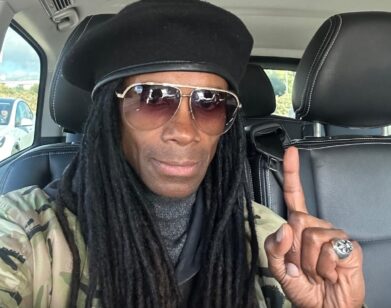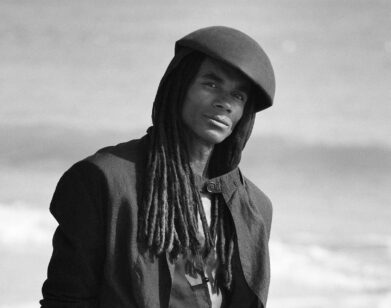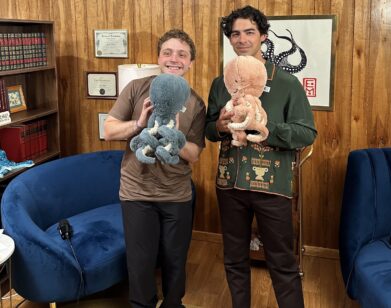Rufus Wainwright Does His Best
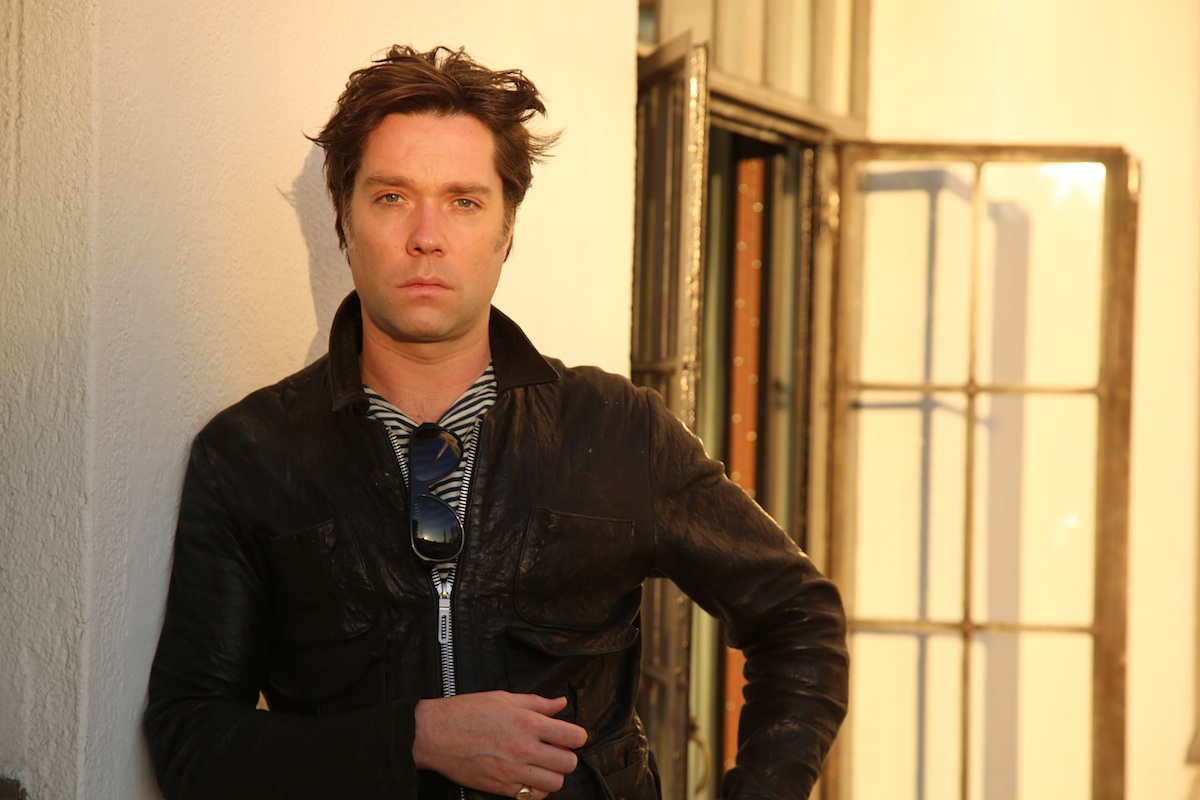
ABOVE: RUFUS WAINWRIGHT. PHOTO COURTESY OF SEAN JAMES
Sixteen years and 10 albums into his career, singer-songwriter Rufus Wainwright is in an enviable place: established and celebrated enough to warrant looking back, by way of a “Best Of” collection out this month; but constantly working and challenging himself, too. He’s currently writing his second opera, based on the life of Emperor Hadrian and due to debut at the Canadian Opera Company in 2018.
Wainwright deliberately avoided calling the new album, Vibrate, a “Greatest Hits” album: “Because I haven’t actually ever had a hit, really,” as he explained to The Independent. His songs may not have climbed the pop charts, but they have staying power: “Cigarettes and Chocolate Milk,” “Poses,” and “The Art Teacher” are as lovely and moving as ever. The album also includes one new song, “Me and Liza,” a playful examination of Wainwright’s relationship with Liza Minnelli. He’s currently touring for the album; we caught up with him ahead of his show at Town Hall tonight.
ALEXANDRIA SYMONDS: As a Judy Garland fan, what did you think of the Oscar tribute to The Wizard of Oz?
RUFUS WAINWRIGHT: I didn’t see it! I had no idea. I’ve got to YouTube it. I was in Venice at the time, at Carnival at a masked ball.
SYMONDS: Well, that sounds like a good excuse. [laughs]
WAINWRIGHT: Yeah, I have a pretty good excuse. It was incredible. It was one of the most beautiful and kind of vaguely scary times I’ve had of late. [laughs]
SYMONDS: Masked balls are so dramatic—you feel like someone’s going to get murdered or have an identity stolen.
WAINWRIGHT: Yeah. Nobody was murdered, but maybe next time!
SYMONDS: So to go about creating a “Greatest Hits” album—or a “Best Of” album, I know that you bristled a little at “Greatest Hits”—how do you go through your own catalogue? Is it self-evident at this point, after 15 years, what stuck for you and what hasn’t?
WAINWRIGHT: No, it’s actually not. There are a lot of songs that I’m sad I wasn’t able to put onto the album. I asked Neil Tennant from the Pet Shop Boys to make the initial list, and he very, very kindly did. The more I think about it, for another artist to actually go through your albums [laughs] and pick out his favorite songs—it’s very moving, actually. I can’t think of another artist I could do that for, who’s alive. [laughs] I’m very indebted to him. Anyways, he did that and I looked over the list and made the tweaks that I could. With time constraints in mind, we came up with what we have now, and I’m very happy with it.
SYMONDS: When you’re compiling a list like that, and you’re turning 40, and you’re still kind of a newlywed, with a toddler, are you sort of waking up every morning thinking, “This is a turning point in my life”?
WAINWRIGHT: Well, what’s interesting about hitting 40 is that, on the one hand, the bark is bigger than the bite—you do the party, and in the morning you might have a few moments of anxiety, but by the end of the night, it’s a day like any other. Something you do start to notice is this kind of incremental decay. [laughs] That happens every two years, now; there’s something that wasn’t quite where it was before. That’s a profound change. [laughs] Whether it’s a change for good or a change for bad really depends on your mindset. I tend to, try anyways, to celebrate my experiences, my wisdom and what I’ve learned and how I’ve grown over the years—even if that means sagged. So it’s all in the head in the end, I guess.
SYMONDS: Is your daughter old enough yet that you have a strong sense of her identity?
WAINWRIGHT: My daughter lives with her mother in Los Angeles, and I see her regularly; I go see her and then there’s other periods where she comes and spends time with my husband and I, so we’re arranging that situation. I have to say, certainly past two years old, there’s some pretty wild stuff that starts to happen. Sadly, it involves cunning, a little mischief and pushing a lot of boundaries, as opposed to this blatant innocence that they have when they’re one. But it’s also very cute and very important for her to develop her survival skills, so it’s really, really fascinating. We all think you hit 40 or you hit 50, you start to decline and so forth, but really, you kind of start to decline after you’re three. [laughs]
SYMONDS: [laughs]
WAINWRIGHT: In a lot of ways, you know? [laughs]
SYMONDS: Well the good thing about being a little older than three, though, is that you’re out of that period of benevolent sociopathy, where you don’t understand that there are other people in the world whose needs are just as important as yours.
WAINWRIGHT: Yeah. She’s a lovely child. She comes from a long line of very, very intense women and that’s great; I like a good, intense woman.
SYMONDS: Is she interested in music, or is it too early to tell?
WAINWRIGHT: She sings a bit here and there; I hear little waftings coming out of the bath area, quite beautiful actually, but I don’t want to push it, either. I wasn’t really pushed as a kid. I was more hurtling myself into the spotlight. [laughs] I wanted to be pushed! If I could’ve had my way, I would have been like Ricky Schroder when I was a child. My mother actually had to kind of pull me back a little, so I’ll probably do the same thing, but if she wants to do music, I’ll definitely point her in the right direction.
SYMONDS: Well, you’ve certainly got a lot of friends around who can help with that.
WAINWRIGHT: Yes, yes.
SYMONDS: Speaking of which, are you still living in Toronto?
WAINWRIGHT: I spend a lot of time in Toronto. My husband and I live between Manhattan and Toronto and Montauk as well. So yeah, we’re East Coast, whether it’s the Great Lake or the ocean. [laughs]
SYMONDS: Are you able to compartmentalize your mental space in each of those three places? “I’m feeling particularly reflective —I have to go to Montauk, I have to be in that space.”
WAINWRIGHT: In Montauk, we feel most at home: that’s like our “Fortress of Solitude,” of sorts… our “Fortress of Togetherness,” I should call it, because we’re usually together there. So that’s where we’re happiest. New York I’ve always loved and will always worship. Toronto is interesting, because I’m from Montreal originally, and I was brought up to basically despise Toronto with all my might; and to now be spending so much time there is very tricky. Because some of what they say is true about that city, and I think even Torontonians would agree that there’s kind of this dull side to the town, but on the other hand, they really come to the table in order of putting on my opera or giving Jörn this fantastic job or really just being dynamic and positive and so forth. So it’s been a bit of a curveball, but I’ve enjoyed it very much. It’s been particularly nice being back in Canada.
SYMONDS: The specific timeline for producing an opera is so different from getting an album out. How have you adjusted to that longer process?
WAINWRIGHT: I’m very happy because the Canadian Opera Company in Toronto has commissioned my next work, which is Hadrian. Having that much time and support and also energy to do it at the moment, knock on wood, is really, really exciting to me. Because I am used to this typical record process where it takes you a few months to make an album and a few months to set it up and a few months to tour—it’s become quite standard. So it’s longer, more in-depth; the more ferocious way of producing an opera is very appealing to me, because it’s not as cookie-cutter as putting out a record. Though all of that is changing as well now, in terms of people not buying records anymore and record companies not really existing like they used to. Who knows, that will probably change too; everything’s changing, I guess.
SYMONDS: It’s such a small pool of people who actually write opera these days. Have you had the chance to talk to anyone like Philip Glass or Nico Muhly about it?
WAINWRIGHT: Well, I know both of them very, very well. I know Philip and Nico, but Nico accompanied me several times when he was very, very young.
SYMONDS: Oh, really?
WAINWRIGHT: Yeah. I’ve known Nico for years, and I know some other composers too. It’s very hard to get an opera produced, end of sentence. With the sort of dwindling budgets of government funding for the arts and also an audience that is teetering on heart failure. [laughs] It’s tough, but I like a challenge and I actually find, in a weird way, like any kind of great fact, it’s a pendulum. Everything is a pendulum and at a certain point, the opposite will start to avail itself. I’m holding on.
SYMONDS: I’m very much looking forward to the day when the hipster appropriation of opera happens. [laughs]
WAINWRIGHT: No, totally. I don’t think it’s that far of a jump, only because opera is really becoming the last remaining bastion of live music where people actually play together, acoustically, not manipulated beyond recognition. It’s not corporatized and it’s different every night. So, it’s a very important place.
SYMONDS: How far along are you with writing it? How much time a day are you spending?
WANWRIGHT: At the moment I’m touring, so I’m not all in there, but when the spring rolls around, that’s when it will begin. The minute I’m off the road I’m into the opera house.
SYMONDS: Wow, that’s so exciting.
WAINWRIGHT: That’s my life! [laughs]
VIBRATE: THE BEST OF RUFUS WAINWRIGHT AND WAINWRIGHT’S LIVE FROM THE ARTISTS DEN DVD ARE BOTH AVAILABLE NOW. HE WILL PLAY TOWN HALL TONIGHT, APRIL 15. FOR MORE ON THE ARTIST, PLEASE VISIT HIS WEBSITE.


